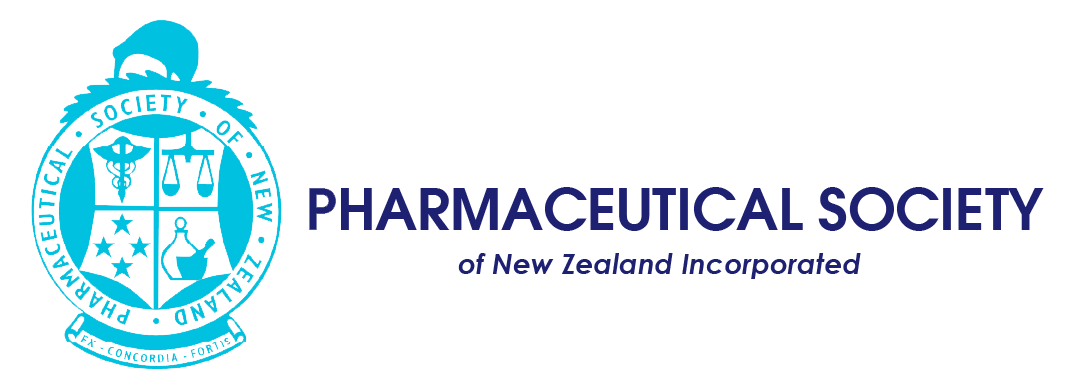Newsroom interviews… Michael Hammond, President of the Pharmaceutical Society of New Zealand.
This week Newsroom sat down with the Society’s new president to find out what their hopes for the future of the pharmacy profession in New Zealand were, their views on the impact AI could have on pharmacy, and why they wanted to lead the Society.
Q. Where did you grow up?
A. I spent my childhood on the North Shore in Auckland, close to where I now live with my wife and two children.
Q. Why did you choose pharmacy?
A. I originally wanted to be a vet and having worked at the local vet clinic for the five years preceding university this seemed like a pretty strong trajectory. However, an experience during a day spent in a community pharmacy in Auckland shifted my focus. I became keenly interested in how different drugs worked and how our bodies would respond to them. The opportunity to directly interact with patients, addressing their health concerns and providing support, resonated deeply with me. I was drawn to the dynamic role of pharmacists in improving health outcomes and ensuring safe medication usage.
Q. Are there other pharmacists in your family?
A. Interestingly, my wife is also a pharmacist, specialising as a clinical software architect, and my sister-in-law practices pharmacy in a general practice setting.
Q. Which pharmacy program did you choose and why?
A. I chose the University of Auckland Pharmacy programme, being from Auckland I was keen to stay local.
Q. Have you maintained links with your classmates?
A. I’ve remained close friends with many of my classmates from pharmacy school. Just last year I flew to Italy to be a best man at one of my classmate’s weddings.
Q. Can you please describe your career trajectory since you graduated?
A. My professional journey in pharmacy started as a student working in a community pharmacy.
I then completed my internship in Hospital, stayed for a few years working in several areas, before leaving to work for a PHO setting up a clinical pharmacist facilitator service across a network of 16 general practice clinics in Rotorua. I then came back to working in hospital for a short time before moving into project management. Here I managed a large quality improvement programme teaching these skills to community pharmacists, GPs and urgent care physicians.
Like many of us, I also then contributed to the COVID-19 response, first in logistics, workforce and PPE supporting the set-up of testing sites and mobile units. And then as the Auckland Metro lead for pharmacy in the roll out of the COVID-19 vaccine. Building on this, I’ve worked in the national primary care and pharmacy commissioning teams before moving to my current role as network manager in the National Clinical Networks Team supporting radiology and infection services.
Q. Why did you want to be President of the Society?
A. Throughout my career, the Society has been a cornerstone of my professional development. From local involvement to national leadership roles, I have witnessed first-hand the transformative impact of PSNZ in shaping the pharmacy profession. As President, I aspire to further elevate PSNZ as a beacon of support and advocacy for all pharmacists, fostering a sense of belonging within our professional community.
Q. What are the challenges facing the pharmacy profession in New Zealand? Do you see the same challenges to pharmacy in other countries?
A. The pharmacy profession in New Zealand faces multiple challenges, ranging from workforce shortages to evolving healthcare landscapes. To maintain relevance and resilience, we must unite as a profession and proactively address these challenges. Similar issues are echoed globally, underscoring the need for collective action and innovative solutions.
Q. What are the options to addressing these challenges?
A. A key strategy in addressing these challenges lies in strengthening the unity and cohesion of our profession. By fostering collaboration and advocating for the value of pharmacy across all sectors, we can amplify our impact and drive positive change.
Q. We have a young pharmacy profession in New Zealand. How do we keep these young pharmacists in the profession?
A. Sustaining the enthusiasm and engagement of young pharmacists is paramount to the future vitality of our profession. By cultivating diverse career pathways, embracing innovation, and championing excellence, we can inspire the next generation of pharmacists to remain engaged in their commitment to improving patient care and advancing the profession.
Q. What are the challenges facing PSNZ and what are our options to address them?
A. As with any organisation and especially in the current climate, PSNZ confronts a myriad of challenges in fulfilling its mission to support and advocate for pharmacists. Ensuring a compelling value proposition for members, enhancing engagement, and adapting to evolving needs are critical considerations. By prioritising transparency, inclusivity, and strategic foresight, PSNZ can navigate these challenges and continue to serve as a trusted ally for pharmacists nationwide.
Q. Is there a role for artificial intelligence (AI) in pharmacy e.g. already robotics, what else could it do and what safeguards would be needed?
A. Undoubtedly, AI holds tremendous potential to revolutionise various facets of pharmacy practice. From streamlining medication dispensing processes to facilitating predictive analytics for patient care, the applications of AI are vast. However, robust safeguards must be implemented to ensure patient privacy, data security, and ethical usage of AI technologies.

